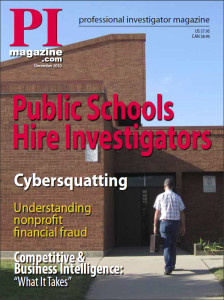Project Goliath
Would you believe that a cyber attack by a rogue nation led to the leak of confidential e-mails about a plot to take down Google?
Sounds incredible–but it’s true. Read on.
Background: On Nov. 24, 2014, Sony Pictures Entertainment was hacked and a considerable amount of confidential data, including personnel information and business documents, were stolen. Experts said this cyber attack was the first against a U.S. company and used a sophisticated and highly destructive data wiping virus that forced Sony to shut down its computer operation for over a week.
Although the hacker was never identified, North Korea is believed to be behind the cyber attack and was in retaliation for The Interview, a comedy about North Korea’s president.
Several movies that were about to be released were available for download on a piracy website. Also available for download was sensitive corporate information and e-mails. What proved to be very damaging were e-mails showing that Sony and other movie companies were working with the Motion Picture Association of America on a clandestine project against a company referred to only as “Goliath.”
Intrigued? Read on.
Project Goliath: Although never mentioned by name, Goliath is believed to be Google and Project Goliath may part of a broad strategy directed against online piracy. This hacked information proved useful to Google which is in a legal wrestling match with Mississippi Attorney General Jim Hood. Hood had issued a 79-page subpoena in 2013 that demanded Google produce information, including whether it helps criminals by allowing searches to find pirated music.
Google filed suit against Hood and sought discovery of the e-mails leaked as the result of the Sony cyber attack to show, among other things, that Hood is in cahoots with the MPAA and has been receiving political contributions from the major film studios.
The legal wrestling match between Hood and Google is ongoing and well worth following.
I’ve enclosed three links in what is turning out to be a real corporate pot boiler.
http://variety.com/2015/biz/news/google-mpaa-mississippi-jim-hood-piracy-1201549228/
http://www.hollywoodreporter.com/thr-esq/google-wants-mpaas-project-goliath-799808
